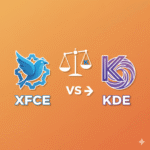If you’re trying to use an external drive or SD card formatted in exFAT on Ubuntu and wondering whether your system supports it — you’re in the right place.
In this guide, I’ll explain what exFAT is, how to check if it’s enabled on your Ubuntu system, and how to install it if it’s missing.
Let’s start with the basics.
What is exFAT?
exFAT (Extended File Allocation Table) is a file system developed by Microsoft that’s designed for flash storage devices like USB drives, SD cards, and external SSDs.
It’s an improvement over FAT32, supporting:
- Larger file sizes (over 4GB)
- Bigger partition sizes
- Better performance for portable storage
Unlike NTFS, exFAT is simpler and more compatible across different operating systems — including Linux, Windows, macOS, and Android.
That’s why exFAT is commonly used in cameras, drones, and portable drives.
Quick Answer
To check if exFAT is supported on Ubuntu, run this command in your terminal:
modinfo exfat
If the command shows details about the exFAT module, your system supports it.
If it says “module not found”, it means exFAT support isn’t installed yet — but you can easily add it.
Step-by-Step: How to Check exFAT Support in Ubuntu
Let’s go through all the steps in detail.
Step 1: Check Your Ubuntu Version
First, find out which Ubuntu version you’re running.
Open your terminal and run:
lsb_release -a
You’ll get an output like:
Distributor ID: Ubuntu
Description: Ubuntu 24.04 LTS
Release: 24.04
Codename: noble
If you’re using Ubuntu 20.04 or newer, exFAT support comes built-in by default.
Older versions (like 18.04 or 16.04) require manual installation.
Step 2: Check if exFAT Kernel Module is Installed
Run this command:
modinfo exfat
If you see something like:
filename: /lib/modules/6.8.0-31-generic/kernel/fs/exfat/exfat.ko
license: GPL
description: exFAT filesystem support
That means your system already supports exFAT natively — you don’t need to install anything.
If you get:
modinfo: ERROR: Module exfat not found.
Then exFAT isn’t installed yet. Don’t worry — you can fix that easily in the next step.
Step 3: Check if exFAT Utilities Are Installed
Even if your kernel supports exFAT, you also need user-space tools to mount and format exFAT drives.
To check if they’re installed, run:
dpkg -l | grep exfat
If you see packages like exfatprogs or exfat-fuse, it means they’re installed.
If you don’t see any result, you can install them manually.
Step 4: Install exFAT Support (If Missing)
For Ubuntu 20.04 or newer:
sudo apt update
sudo apt install exfat-fuse exfatprogs -y
- exfat-fuse → allows mounting exFAT drives
- exfatprogs → allows formatting and managing exFAT partitions
If you’re on Ubuntu 22.04 or 24.04, these packages are usually preinstalled, but running the above command ensures everything is set up correctly.
Step 5: Test by Mounting an exFAT Drive
Plug in your USB drive, memory card, or external SSD.
Then, check whether it’s recognized automatically:
lsblk
You’ll see a list of drives, for example:
sda 8:0 0 500G 0 disk
├─sda1 8:1 0 499G 0 part /media/pratham/exfat-drive
If your drive appears under /media/ and opens normally in your file manager, exFAT is working perfectly.
If not, you can mount it manually using:
sudo mount -t exfat /dev/sdb1 /mnt
(replace /dev/sdb1 with your actual device path)
Step 6: Optional – Format a Drive as exFAT
If you want to format a USB or SD card as exFAT, use:
sudo mkfs.exfat /dev/sdb1
Make sure you replace /dev/sdb1 with the correct device.
This command will erase the drive and create a fresh exFAT file system.
How to Verify Mounted exFAT Drive
To confirm that your drive is mounted as exFAT, use:
df -Th
You’ll get an output like:
Filesystem Type Size Used Avail Use% Mounted on
/dev/sdb1 exfat 64G 1.2G 63G 2% /media/pratham/exfat-drive
If the Type column shows exfat, then it’s successfully recognized.
Troubleshooting Tips
If your exFAT drive doesn’t mount automatically, here are a few quick fixes:
- Reinstall exFAT tools
sudo apt reinstall exfat-fuse exfatprogs - Check kernel module manually
sudo modprobe exfat - Run dmesg for errors
dmesg | tail -n 20This shows any kernel messages related to your USB device. - Ensure permissions
If you’re trying to mount as a normal user, usesudoor mount under/media/username/.
Does Ubuntu Support exFAT by Default?
Yes — since Ubuntu 20.04 LTS, exFAT support is built into the Linux kernel.
You don’t need to install any extra packages in newer versions (like 22.04 or 24.04).
That means you can plug in an exFAT USB or SD card, and it’ll work automatically.
Older versions (like 18.04 and below) require manual installation of exfat-fuse and exfat-utils.
Why exFAT is Great for Linux Users
Here’s why most Linux users prefer exFAT for external drives:
| Feature | exFAT | FAT32 | NTFS |
|---|---|---|---|
| Max File Size | 16 EB | 4 GB | 16 TB |
| Compatible with Windows | ✅ | ✅ | ✅ |
| Compatible with macOS | ✅ | ✅ | ✅ |
| Native Linux Support | ✅ (20.04+) | ✅ | Partial |
| Best For | Cross-platform drives | Small drives | Windows-only storage |
So, if you often switch between Windows, macOS, and Linux — exFAT is the most convenient choice.
Conclusion
Checking exFAT support in Ubuntu is simple, and most modern versions include it out of the box.
In fact, from Ubuntu 20.04 onwards, you can just plug in an exFAT drive, and it will mount instantly — no setup needed.
If you’re running an older version, installing exfat-fuse and exfatprogs will take care of everything.
Once that’s done, you can mount, format, and use exFAT drives seamlessly across multiple operating systems — without worrying about compatibility.
Quick Summary
| Step | Command | Purpose |
|---|---|---|
| Check Ubuntu Version | lsb_release -a | Know your system release |
| Check Kernel Module | modinfo exfat | See if exFAT is supported |
| Check Installed Packages | `dpkg -l | grep exfat` |
| Install exFAT | sudo apt install exfat-fuse exfatprogs | Add support |
| Mount exFAT Drive | sudo mount -t exfat /dev/sdb1 /mnt | Test drive |
| Format as exFAT | sudo mkfs.exfat /dev/sdb1 | Format drive |
Discover more from PratsDigital
Subscribe to get the latest posts sent to your email.


